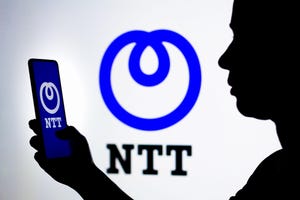December 14, 2018

US cable providers are gearing up to play a crucial role by supporting transport of 5G communications. But, according to a new Heavy Reading report, their aspirations are clouded by the complexity of 5G itself.
Cable could be 5G's savior. MSOs possess the robust wired backhaul network that 5G requires plus the space and power requirements needed for small cells that will connect users at a high-speed, low-latency level.
Similar to the hype over 5G itself, the promise of 5G transport service is meeting harsh reality, according to the report, Cable's 5G Transport Role: Promise Meets Complexity. The road to success is much more complicated than what cable has faced with its current cellular tower backhaul support. Cable is poised to provide wholesale transport services to mobile network operators (MNOs) and perhaps small cells as a service to businesses. But providers must be careful to avoid getting stuck in a quagmire of complexity, Heavy Reading said.
The report analyzes the prospects for cable to provide 5G mobile transport services and examines the recent technologies and strategies that are being explored. It assesses the challenges that cable, mobile and technology companies must overcome to make 5G a success. 5G transport was a primary topic during recent Light Reading conferences and SCTE Cable-Tec Expo 2018, providing relevant updates.
5G requires a transport system of fronthaul, midhaul and backhaul, and the parameters of how that will work have yet to be worked out. The path to 5G deployment is muddied by conflicting agendas, capabilities and unfinished standards, making it difficult to plan, budget and forecast for transport and small cell needs.
In addition to technological complexity, 5G transport is clouded by competitive issues. Verizon and AT&T appear to be establishing their own fiber-based transport wherever possible; others, such as cell tower owner Crown Castle, are increasing their fiber transport networks. The competitive stakes are high since 5G could become a threat to cable's broadband business while cable could use it to compete against the MNOs. Meanwhile, there already are signs of public resistance to more towers and small cell installations that are being deemed an eyesore.
Entering this fray, cable technology suppliers are playing various roles and preparing products and solutions, including infrastructure support, mobile transport, small cells, powering, monitoring and testing. Heavy Reading has identified 22 cable suppliers that are expanding into 5G or participating in WiFi, Citizens Broadband Radio Service (CBRS) and related fields that could lead to a 5G role. In this increasingly crowded field, suppliers may find themselves competing against each other, as well as other global mobile suppliers and international players.
— Craig Leddy, Contributing Analyst, Heavy Reading
Read more about:
OmdiaAbout the Author(s)
You May Also Like











